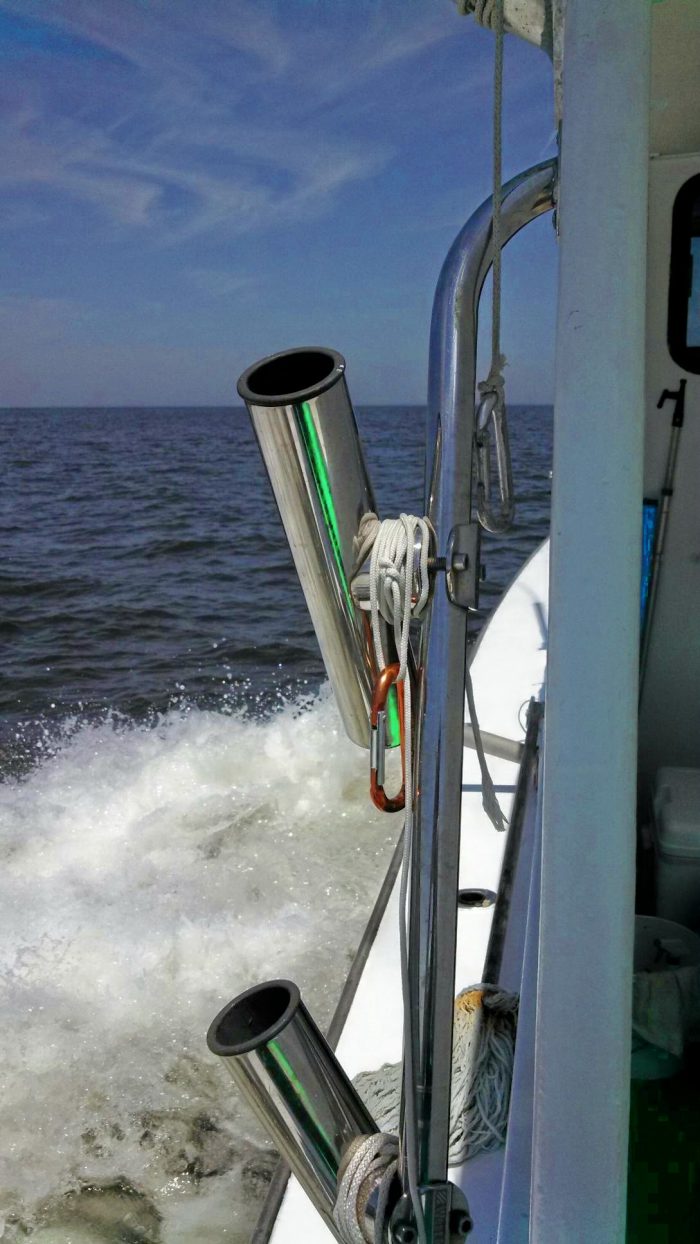 “When the wind blows from the east, the fish bite the least; when the wind blows from the west, the fishing is best!” Boaters are familiar with this phrase. I remember my grandfather preaching this when we would boat in Deep Creek Lake for pike.
“When the wind blows from the east, the fish bite the least; when the wind blows from the west, the fishing is best!” Boaters are familiar with this phrase. I remember my grandfather preaching this when we would boat in Deep Creek Lake for pike.
It makes sense and teaches us how to use a compass. Most weather systems circle the Earth from west to east. These normal wind conditions are most normal, and familiar. A Nor’easter, or weather pattern that travels from the east, is often a hurricane, or something not as common.
Fish and fishermen are creatures of habit. They feed on a certain tide, light, food, and what they are used too. When things change, so do their habits. The good news is that fish have to eat. Fishermen can adjust to the weather, tides, depths, and times. Knowing the norms, habits and behaviors will help you to overcome the windy days.
My neighbor, Captain Mike, loves to catch stripers out of Middle River, on the Chesapeake Bay. From his front porch, he looks at the trees, across our cul-de-sac, to see if any wind is blowing the leaves. If they are moving, the boat isn’t. Not bad for living several miles from the nearest water. Ironically, he is often right. Hitting the water, on the days when the wind is blowing the homestead leaves, means a rough and bouncy day on the water.
Just because the wind is blowing does not mean you can’t catch fish. If every fisherman, and boater, waited for the days when the wind was just right, most boats, and fishermen would never get out. Some fishing improves on windy days. The wind may help to drift, or float, through schools of fish, without the noise, and vibration from a motor.
Windy days often mean that the fish are closer to the surface. Since the water is rough, visibility is harder. This means that raptors, gulls, and predators can’t dive on their prey. Baitfish schools are broken up by rough water, and are easier prey for the fish. Shallow water waves stir up the bottom, and food, that often attracts fish.
Rough water days are harder to chum on. The rough water dissolves and spreads out the attracting scent too much. Your drifted baits end up moving up and down unnaturally. Holding to the bottom can be a challenge. Trolling on rough and windy days is also harder, but fish can be more secure, and nearer to the surface. You will need to adjust your direction, speed, and mindset. Backtrolling may be required. Troll where your technology, sonar, is saying where the fish, and structure are. Trolling blindly is a waste of time, and fuel.
Getting seasick on rough and windy days can be an issue. See your Dr. for meds, or learn how to tough it out. Fluids are important but lay off the booze. Rough water days means things can go south in a hurry. A rogue wave, malfunction, or loss of balance could be fatal. Wear your life vest and anticipate the worst. Being prepared is the best way to avoid the hazard.
Safety is always first! Do not boat, and fish, in heavy winds if you are unskilled, and uncomfortable. It is not worth dying over. Rough water, and nautical days, are best left to the most experienced watermen. They are often willing to teach others so maybe hook with them to learn which way the wind blows.
Wind Blows, but so does staying home. The greatest crime about owning a boat is to not use it. Too many boats sit at the dock, boatyard, or on their trailer too much of their life.
“Well Blow me down, Matey!” Go with the flow and adapt to how the wind blows.
Montana Grant
For more Montana Grant, visit his website at www.montanagrantfishing.com.